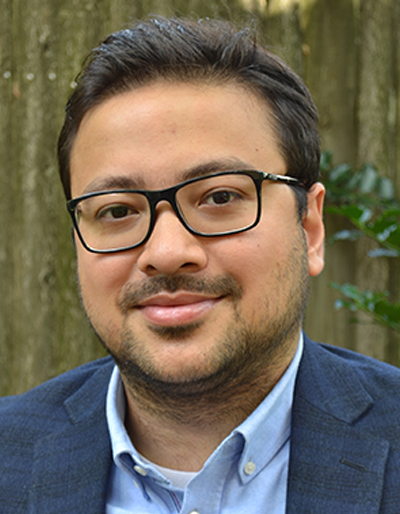New Global Affairs courses explore contemporary issues through interdisciplinary lens
Faculty design courses to empower students to explore world issues through interdisciplinary and rigorous perspectives
At Yale-NUS, students can look forward to an academic journey that is rigorous, engaging, and deeply relevant to our rapidly changing world. Two new Global Affairs courses taught this semester — Populism, and Technology and International Security — reflect this mission by empowering students to investigate the complex, transboundary issues of an interconnected world.
Divided into six units that examine the close relationship between democracy and populism, the course on populism is a comprehensive introduction into how populism attempts to undermine liberal democracy as observed across the world today. Indeed, Assistant Professor of Social Sciences (Political Science) Benjamin Schupmann decided to offer this course precisely because of its worldwide relevance. “Populists in power can do a lot of harm to a democracy,” said Asst Prof Schupmann. “Studying populism allows us to better understand what democracy is, and what its potential pathologies are.”
 Assistant Professor of Social Sciences (Political Science) Benjamin Schupmann teaches new Global Affairs course, Populism. Image provided by Asst Prof Schupmann.
Assistant Professor of Social Sciences (Political Science) Benjamin Schupmann teaches new Global Affairs course, Populism. Image provided by Asst Prof Schupmann.
“I am excited to show students how populism is a truly global phenomenon. Whether we realise it or not, populist states from around the world are affecting our lives right now. The issue matters a lot,” he added.
To fully underscore the real-world relevance of populism, Asst Prof Schupmann incorporated a presentation-based assignment into the course, where students team up to dive deep into a populist movement of interest and introduce their research to the class. Through this exercise, students can pair their theoretical knowledge with their passion, and uncover more about different parts of the world. Asst Prof Schupmann hopes that, in so doing, students will gain a deeper insight into the diverse forms of populism around the world as it adapts to different political contexts.
“The course is very interesting and timely. There were a lot of real-world case studies; we watched a documentary on Rodrigo Duterte and Maria Ressa to study populism’s relationship with the media, and also studied Singaporean populism,” shared Sheriah Peries (Class of 2025).
Tackling a topic so complex requires an approach both accessible and interdisciplinary. Asst Prof Schupmann also designed the course to be accessible and interesting to students of all levels –“whether it’s a first year just exploring politics or a fourth year with a lot of experience in politics modules” – while integrating elements from traditionally separate disciplines. Understanding the popularity of populist politicians, for example, requires knowledge of recent economic policy, while the impact of populists on political institutions is a philosophical and political study.
“We cannot understand, let alone respond to, populism without approaching it from these different perspectives,” said Asst Prof Schupmann.
 Assistant Professor of Social Sciences (Political Science) Rohan Mukherjee’s course looks at the emergence of new technologies and international relations. Image by Asst Prof Mukherjee.
Assistant Professor of Social Sciences (Political Science) Rohan Mukherjee’s course looks at the emergence of new technologies and international relations. Image by Asst Prof Mukherjee.
In a similar interdisciplinary spirit, the Technology and International Security course is a broad-based survey of new technologies’ effects on international relations. It examines the political, social, and economic factors that influence the development of new technologies. Students taking this course are also expected to investigate the historical and contemporary impact of technologies, such as nuclear weapons and artificial intelligence.
“Technology is itself embedded in society, politics, and culture in ways that are important to understand if we want to systematically study the emergence and impact of specific technologies,” elaborated Assistant Professor of Social Sciences (Political Science) Rohan Mukherjee when asked about the key themes of the course. To this end, every student is required to present on a reading, not only by critically examining its content, but also its links to other readings or courses.
Asst Prof Mukherjee ensures that such interdisciplinary exploration is coupled with an engagement of real-world issues. Discussions of how International Relations theory sheds insight into technologies’ development permeate the course, such that content remains accessible regardless of students’ prior exposure to International Relations.
“The overall approach ensures that even if the theoretical knowledge among students is a bit rusty, the course will give them an in-depth survey of technology embedded in the broader International Relations field,” Asst Prof Mukherjee remarked. Luke Seow (Class of 2023) agrees, adding that these connections are especially relevant in today’s world.
“With recent world events, it has become all the more important to understand the relationship between technology and society,” commented Luke. This course, like all other Global Affairs courses, draws from real-world complexities and other disciplines to broaden Yale-NUS students’ views.





